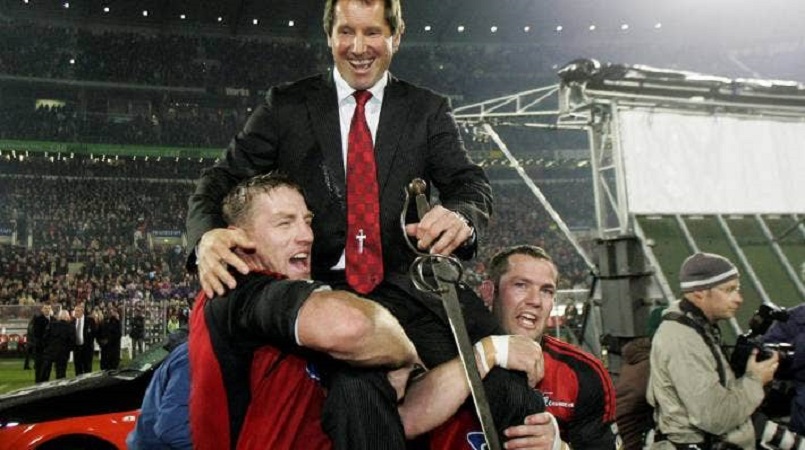
The secret is out about Japan's Top League and overseas players and coaches know it.
All Blacks Beauden Barrett and Brodie Retallick, Springbok Malcolm Marx and Wallaby Samu Kerevi, among many others, will ply their trade in Japan's domestic competition this year, before it turns fully professional in 2022.
Foreign coaches such as Robbie Deans (ex Crusaders), Todd Blackadder (ex Crusaders) and Frans Ludeke (ex Bulls) are also passing on their intellectual property, but even as they forge ahead in Japan they keep an eye on rugby's direction in their own countries – and there are concerns.
“What's best [in a competition] is something that captures the imagination of the public,” Deans said in a Top League coaches conference call with Blackadder and Ludeke on Wednesday evening, NZ time.
“Because each nation needs to tend to their domestic market, their factory, otherwise the long run won't be pretty.
“Obviously coming from the south, that's something that is pretty close to my heart, and I look to the south and I’m a bit anxious about the impact over time, if you join the dots, of the trend for Super Rugby
“For various reasons interest levels have waned.
“The rugby component is still competitive when you look at the history of nations from the south winning World Cups.
“[But] South Africa could very well end up going north, which might start to change some of those numbers, which is another reason to be anxious if you come from the south.”
Japan's Top League is rising not just because of the juicy contracts waved at top-line talent by the well-funded teams.
Kubota coach Ludeke, the mastermind behind the Bulls’ glory years in the ‘old’ Super Rugby, revealed that the Rugby World Cup produced such a burst of enthusiasm that hundreds of fans subsequently turned up at Top League training sessions.
“That brings an excitement for players,” Ludeke said. “And the word goes back to South Africa or to New Zealand and they say, ‘Listen, this is a great destination'.”
The competition's ascent is happening at precisely the same time that other leagues are struggling to find the right format that marries high performance, fan engagement, commercial sustainability, player welfare and development for the national teams.
Toshiba coach Blackadder – who also pointedly said he was enjoying the lack of “influence” from Japan coach Jamie Joseph compared to his experience with the All Blacks when he coached the Crusaders – has clearly spent some time pondering the subject, informed by both his Super Rugby and English Premiership (Bath) experiences.
“The best competitions have the best formats, where everyone plays each other within a certain time frame,” Blackadder said.
“And you've got all the players available for that one competition. I reckon that's the best because it gets engagement from the people that invest in the game.
“From players, to support staff, to people on seats to sponsors. There's no better package than that.”
That sounds like a simple plan but critics of Super Rugby over the past decade will argue that the competition drifted away from the formula, while the level of control exerted by the All Blacks over players has also been a frustration.
On the latter, there could be a slight shift back towards the Super Rugby clubs, with Highlanders coach Tony Brown revealing on Wednesday there were no hard and fast rules around the resting of All Blacks players this year.
A 10- or 12-team trans-Tasman/Pacific competition from 2022 onwards could also provide a simpler format in favourable time zones for fans to connect with.
Yet, Deans indicated that New Zealand Rugby and administrators in the south had reached a crossroads and their decisions would decide the game's future for decades to come.
“There's some challenging decisions to be made from those in governance, but they've got to think about both ends [the domestic and overseas markets],” he said.
“That's my concern. There are some places that don't have to.
“In the north is the obvious one. You're going to fill your grandstands, you're going to have eyeballs regardless.
“You could make many bad decisions in a row and the game would still be fine.
“That's not the case in the south.”
